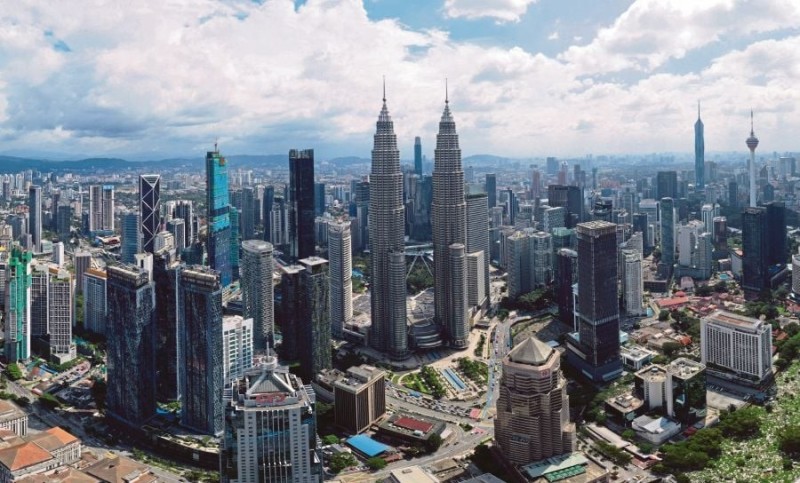
Image credit: InvestKL
KUALA LUMPUR: Malaysia's green investments have more than doubled last year, contributing to a notable increase in the region, according to a report prepared by five global entities including Temasek and Google.
The sixth edition of the Southeast Asia's Green Economy report stated that six of Southeast Asia economies that were surveyed saw a 43 per cent spike in private green investments to US$8 billion in 2024 compared to the previous year.
Malaysia and Singapore contributed over 60 per cent of the deals.
Other countries surveyed in the report were Indonesia, the Philippines, Thailand and Vietnam.
The report was prepared by Bain & Company, GenZero, Google, Standard Chartered and Temasek.
"Power continues to hold two-thirds share of green investments in the region with increase in deal sizes.
"Within the sector, solar witnessed the biggest jump (100 per cent) in investments while waste management deals increased 60 per cent year-on-year, driven by water treatment and recycling projects," it said.
The report noted that Malaysia is on track to deliver its green targets, among which include net zero emissions by 2050, 45 per cent greenhouse gas emission reduction by 2030 and 40 per cent renewable energy in energy mix by 2035.
Regionally, corporations continue to lead green investments, as with India and South Korea.
Climate funds' and infrastructure funds' interest in the region also grew significantly by four times and 14 times, respectively.
Notably, foreign investments outside of APAC to the six countries' green economy more than tripled over the last year, while foreign investments from APAC doubled.
Domestic investment in the countries fell by 40 per cent but these investors were active in green growth in the rest of APAC.
This report identified three core systems-level solutions important for growth in the region and decarbonisation namely a sustainable bioeconomy, next-gen grid development, and an electric vehicle (EV) ecosystem.
Bioeconomy is a critical component in the countries surveyed, contributing 25–30 per cent of jobs across key markets, in commodities such as palm oil, rubber and rice.
"However, current bioeconomy practices fuel emissions and deforestation, contributing about 30 per cent of total emissions in SEA-6 and ongoing forest loss.
"Key systemic barriers such as smallholder farmer dominance, weak infrastructure and supply chain, unclear land rights and regulatory complexities and nascent carbon pricing and carbon markets prevent the region's bioeconomy from reaching its full economic potential," it stated.
It also underscored the need for an expansion of the region's domestic grid expansion and modernisation to keep up with the integration of renewables, battery storage systems, distributed energy resources and microgrids.
On EV take up, the report said the penetration rate is still low in Southeast Asia, with 80 per cent of its auto manufacturing is geared towards traditional internal combustion engine vehicles.
"As the world moves towards greater EV adoption, Southeast Asia could be at economic risk if it does not catch up.
"The region needs a dual strategy to scale EV demand and local production, to retain its manufacturing edge and drive decarbonisation in the most cost-effective way."
The report also highlighted three essential enabling solutions required to augment the impact of the systems-level solutions.
Climate and transition finance is growing in Southeast Asia, but a funding gap of over US$50 billion remains and could widen amidst macro uncertainty.
Growth is apparent in blended finance but it is constrained by small deal sizes, red tape and investor mismatch.
It added that favourable policies, talent development and public-private partnerships are necessary to move the needle.
The report also highlighted that cross-stakeholder coordination is critical whereby governments must standardise taxonomies and expand co-financing, while commercial investors scale up.
"The transition to a low-carbon economy is more compelling and crucial than ever,"
said Standard Chartered Malaysia chief executive officer Mak Joon Nien.
"As the report sets out, the opportunity to finance the transition is significant and we will continue to come alongside our clients as their partner of choice on this journey," he added.
Source: https://www.nst.com.my/business/economy/2025/05/1215599/malaysia-draws-significant-green-investments-2024-report

